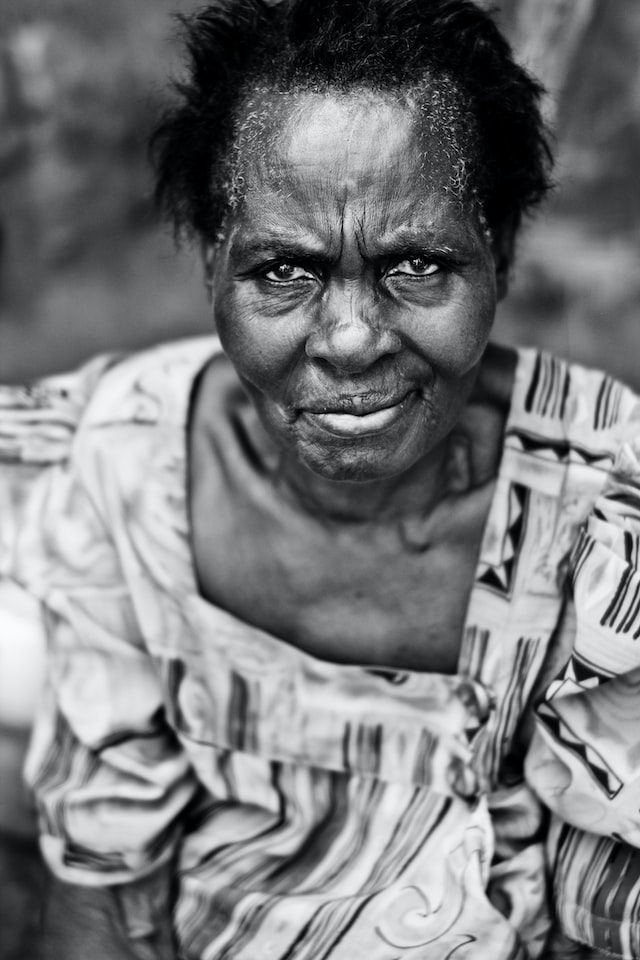Invisible Women, Invisible Problems.
- Montse DomínguezMunllonch

- Sep 26, 2022
- 3 min read
Did you know ....
There are an estimated 258 million widows around the world, and nearly one in ten live in extreme poverty.
In some parts of eastern Democratic Republic of the Congo, for instance, it is reported that around 50 per cent of women are widows.
Widows are coerced into participating in harmful, degrading and even life-threatening traditional practices as part of burial and mourning rites.
No access to credit or other economic resources, even for childcare or education.
No rights or limited rights, to inheritance or land ownership under customary and religious law.
Dependent on the charity of their husbands’ relatives.
Disowned by relatives and made homeless in countries like India, forcing many women to seek informal work as domestic labourers or turn to begging or prostitution.
In some cases, widows can become liable for the debts of a deceased spouse.
Widows make up a sizeable percentage of the world’s poorest people.
The World Bank report Voices of the Poor includes a special section on widows, with information extrapolated from its participatory poverty assessments in several countries. It begins with a definition of poverty: “Poverty is much more than income alone. For the poor, the good life or well-being is multidimensional, with both material and psychological dimensions. Well-being is peace of mind; it is good health; it is belonging to a community; it is safety; it is freedom of choice and action; it is a dependable livelihood and a steady source of income; it is food.” (Voices of poor , World Bank, 2000 )

Poor nutrition, inadequate shelter and vulnerability to violence, combined with a lack of access to health care.
Sexual and reproductive health needs of widows may go unaddressed.
Widows are particularly vulnerable in the context of HIV and AIDS. Women may be kept unaware of the cause of their husband’s AIDS-related death and made to undergo ritual cleansing through sex with male relatives regardless of HIV status. The economic insecurity stemming from widowhood also drives some women and girls to sex work.
Particularly across Africa and Asia, widows find themselves the victims of physical and mental violence – including sexual abuse – related to inheritance, land and property disputes.
Widows are coerced into participating in harmful, degrading and even life-threatening traditional practices as part of burial and mourning rites. In a number of countries, for example, widows are forced to drink the water that their husbands’ corpses have been washed in. Mourning rites may also involve sexual relations with male relatives, shaving of the hair and scarification.
Experience from the past, shows that widows are often denied inheritance rights, have their property grabbed after the death of a partner, and can face extreme stigma and discrimination, as perceived ‘carriers’ of disease. Worldwide, women are much less likely to have access to old age pensions than men, so the death of a spouse can lead to destitution for older women. In the context of lockdowns and economic closures, widows may not have access to bank accounts and pensions to pay for healthcare if they too become ill or to support themselves and their children. With lone-mother families and single older women already particularly vulnerable to poverty, this is an area that needs urgent attention.
In Kenya, community watchdog organizations and other groups providing home-based care for those living with HIV/AIDS are intervening. When they encounter property grabbing, they negotiate, mostly with male members of the family, for women and girls to retain access to the land and property.
Programmes and policies for ending violence against widows and their children, poverty alleviation, education and other support to widows of all ages also need to be undertaken.
Coachability Foundation has a rural women's program in Kenya since 2019 which focuses on empowering widow women through entrepreneurship. Our aim is alleviating poverty and dignify their life. When people can break through barriers of poverty and exclusion, influence decisions that affect them. For further information go to the link.
Organizations like, UN Women’s Africa programme for rural women has several pillars through which women’s role in agricultural transformation can be enhanced. It considers equitable land allocation as critical to such a transformation. One of its strategies is “to strengthen the capacities of the ministries of agriculture to prioritize support to women food production systems in their planning and resource allocation mechanisms.”
One of UN Women’s key messages is, “Rural women play a key role in food production and food security in Africa.” The UN agency encourages governments, development partners and the private sector to enhance women’s rights to land, arguing that “if it benefits rural women, you can call it development.” (UN, 2022)
Pic by Colby Ray @colbyjray
Curator Munllonch
Sources :
#widow #grief #widowlife #griefjourney #widowsofinstagram #griefandloss #widowhood #youngwidow #griefsupport #lifeafterloss #widows #widowed #grieving #overwatch #widowshelpingwidows #griefawareness #loss #love #widowmaker #widower #griefsucks #widowhoodsisterhood #munllonch #bereavement #widowstrong #griefquotes #griefrecovery #widowedmom #hopeforwidows #posttraumaticgrowth #youngwidows #empoweringentrepreneurwomen #forwomen #coachabilityfoundation #coachability #widowsinkenya #empoweringwomen #womenrights #ddhh #madamonditi #goatorgheep
.jpg)
.jpg)







Comments